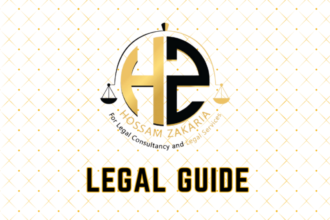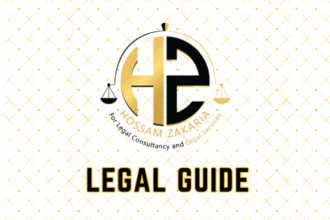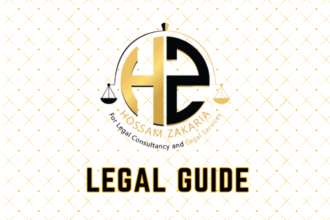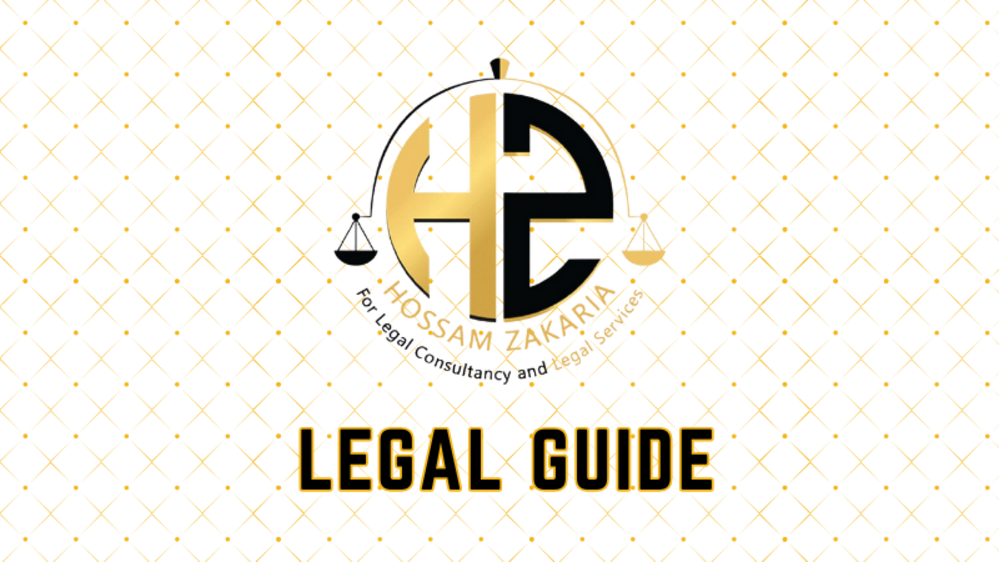Introduction: Navigating Banking Disputes in the Modern UAE Legal Framework
In the rapidly evolving landscape of the United Arab Emirates, the financial sector lies at the heart of economic growth and global relevance. With the introduction of new legal reforms, particularly the recent Federal Decrees and Cabinet Resolutions, banks and financial institutions must make critical decisions when disputes arise – specifically, whether to pursue arbitration or litigation. The significance of this choice has never been greater, given the complexities of cross-border finance, the sophistication of financial instruments, and the UAE’s drive to align with global best practices.
For legal officers, executives, compliance managers, and clients navigating banking operations in the UAE, understanding the evolving judicial and arbitral frameworks is essential. Not only are financial implications at stake, but also reputational, operational, and compliance risks. This article delivers an authoritative analysis, practical recommendations, and comparative insights to empower decision-makers in choosing the most advantageous dispute resolution mechanism under UAE law, 2025 updates and beyond.
Table of Contents
- Overview of UAE Banking Dispute Resolution Mechanisms
- Recent Legal Reforms Impacting Banking Disputes: 2023-2025 Updates
- Understanding Arbitration for UAE Banking Disputes
- Litigation in UAE Banking Disputes
- Arbitration and Litigation: Comparative Analysis
- Case Studies: Real-World Applications and Outcomes
- Compliance Risks and Strategies for UAE Banking Institutions
- Professional Recommendations and Best Practices
- Conclusion: The Future of Banking Dispute Resolution in the UAE
Overview of UAE Banking Dispute Resolution Mechanisms
The Dual Framework: Litigation and Arbitration
The UAE offers a dual framework for resolving banking disputes:
- Litigation before national courts – civil, commercial, and specialized court circuits.
- Arbitration – either institutional (DIFC-LCIA, ADCCAC, etc.) or ad-hoc, subject to agreement of the parties.
The UAE’s legislative structure, as published in the Federal Legal Gazette and via the UAE Government Portal, underpins both mechanisms. Key sources include:
- Federal Law No. 6 of 2018 on Arbitration
- Federal Law No. 10 of 2023 on Banking Business (new comprehensive regulation)
- Civil Procedure Law – Federal Law No. 11 of 1992, as amended (latest updates 2023–2024)
The choice between arbitration and litigation impacts enforceability, confidentiality, speed, flexibility, and potential costs. The growing use of arbitration clauses in commercial banking agreements reflects a strategic preference for privacy and international enforceability, but litigation retains a critical role in some scenarios – especially where urgent remedies or public order considerations arise.
Recent Legal Reforms Impacting Banking Disputes: 2023-2025 Updates
Key Legal Developments
The period from 2023 onward has been marked by transformative updates:
- Federal Law No. 10 of 2023 (Banking Business Regulation): Introduced a harmonized legal architecture for banking, including dispute resolution mandates and regulatory interventions.
- Amendments to Federal Law No. 6 of 2018 (Arbitration Law): Streamlined procedures, clarified arbitrator powers, and improved enforceability of awards.
- Dubai and Abu Dhabi Judicial Evolution: Judicial Departments have unveiled new guidelines to fast-track banking litigation and promote alternative dispute resolution (ADR).
- Central Bank Directives and Cabinet Resolutions 58 and 87 of 2023: Set regulatory prerequisites for dispute resolution clauses in banking contracts, ensuring consumer protection and transparency.
| Area | Previous Framework | 2023-2025 Legal Update |
|---|---|---|
| Arbitration Law | Federal Law No. 6 of 2018 (original text) | Amended to enhance speed, efficiency, and clarity of procedures |
| Banking Dispute Resolution | No unified regulation, fragmented dispute provisions | Federal Law No. 10 of 2023 centralizes rules |
| Consumer Protection | Limited, largely left to contract | Strong regulatory oversight, new consumer dispute processes |
| Enforcement | Unclear procedural guarantees, variable length | Fast-track recognition and enforcement, especially for arbitral awards |
Implications for Banking Disputes
These changes strengthen both litigation and arbitration, driving higher standards for dispute resolution, compliance, and banking governance. The legal structure now encourages well-crafted arbitration agreements, transparent dispute resolution clauses, and proper documentation to comply with oversight agencies such as the UAE Central Bank.
Understanding Arbitration for UAE Banking Disputes
Core Principles of Arbitration under UAE Law
Arbitration is a private, consensual process where disputing parties agree to appoint neutral arbitrators to determine their dispute, rendering a binding and largely final award. The UAE’s Federal Arbitration Law No. 6 of 2018 (revised through 2025 amendments), based on the UNCITRAL Model Law, positions arbitration as a sophisticated and flexible dispute resolution vehicle.
Advantages of Arbitration in Banking Disputes
- Confidentiality: Ensures sensitive financial information is protected, shielding both banks and clients from reputational harm.
- Enforceability: Under the New York Convention (since 2006, as ratified by the UAE), arbitral awards can be recognized and enforced internationally, facilitating cross-border transaction security.
- Expertise: Parties may appoint arbitrators with deep knowledge in banking and finance—a decisive advantage over generalist courts.
- Flexibility: Parties may choose language, seat, and procedural rules tailored to the transaction and dispute.
Arbitration Process Flow Diagram
Suggested Visual: Flow diagram illustrating the typical steps in a UAE banking arbitration— from notice of arbitration, appointment of tribunal, hearings, award issuance, and enforcement.
Special Requirements for Valid Arbitration Agreements
Recent legal practice, confirmed by Dubai and Abu Dhabi Courts in various 2024 decisions, underscores that enforceable arbitration agreements in banking contracts must:
- Be in writing and explicit
- Clearly define scope and seat of arbitration
- Comply with any consumer notification requirements mandated by Central Bank regulations
- Address procedural aspects such as appointing authority and applicable rules (e.g., DIFC-LCIA, ICC, ADCCAC)
Non-compliance may render arbitration clauses void or unenforceable, exposing parties to conventional litigation where they may not benefit from intended confidentiality, speed, or expertise.
Litigation in UAE Banking Disputes
Key Aspects of UAE Litigation
Despite the rise of arbitration, litigation before UAE courts remains pivotal, especially in the following contexts:
- Absence of valid arbitration agreements
- Matters involving public order or criminal-linked financial allegations
- Interim relief, urgent injunctions, or asset freeze applications
- Disputes with unsophisticated parties (consumers, SMEs) requiring statutory protections
Major banking disputes may proceed before:
- Onshore UAE civil/commercial courts per Civil Procedure Law No. 11 of 1992 and its 2024 amendments
- Specialized Banking and Financial Dispute Circuits in Dubai and Abu Dhabi Judicial Departments
- Free zone courts (DIFC Courts, ADGM Courts) for qualifying transactions
Litigation Procedure: Practical Steps
- Filing of claim, service of notice to defendant
- Preliminary hearings and submission of evidence
- Court-appointed expert proceedings (common in technical banking matters)
- Judgment and possible enforcement/execution steps (including seizure of funds or assets per Federal Decree-Law No. 30 of 2022 on Asset Seizure and Recovery)
Suggested Visual: Flow chart summarizing key procedural stages in UAE court litigation for banking disputes.
Recent Efficiency Reforms
Notably, Civil Procedure Law amendments (Decree-Law No. 42 of 2022 and 2023-2024 Cabinet Resolutions) have accelerated timelines, introduced mandatory mediation attempts for certain disputes, and modernized witness testimony requirements. Courts now operate with digital case management, and judgment enforcement for financial cases has been expedited.
Arbitration and Litigation: Comparative Analysis
| Aspect | Arbitration | Litigation |
|---|---|---|
| Confidentiality | High; closed/private proceedings | Low; hearings and judgments are public |
| Speed | Generally faster, predictable timelines | Improved but may be longer with appeals/expert stages |
| Enforceability | International via New York Convention | Within UAE or via bilateral/multilateral treaties |
| Costs | Potentially higher (arbitrator/administrative fees) | Court fees; costs may accrue if appealable |
| Expertise | Customizable; sector specialists possible | Varies; court expertise may be limited in banking |
| Flexibility | High; parties set rules | Low; procedural rules mandatory |
| Availability of Interim Relief | Depends on institutional rules (DIFC-LCIA, ADCCAC allow) | Readily available from courts |
Which Disputes Are Best Suited for Arbitration?
Banking disputes best resolved through arbitration typically involve large-scale cross-border lending, syndicated financing, or confidential settlements where rapid international enforcement is vital, and highly specialized knowledge is required. Arbitration may be less suitable where statutory consumer protections or public order issues are central.
Practical Checklist for Structuring Dispute Resolution Clauses
| Requirement | Compliance (Yes/No) |
|---|---|
| Clear arbitration seat and institution specified | |
| Governing law defined for substantive and procedural issues | |
| Consumer notification provisions (per Central Bank) | |
| Flexibility for urgent court intervention scenarios | |
| Enforceability language referencing New York Convention |
Case Studies: Real-World Applications and Outcomes
1. Cross-Border Loan Syndicate Arbitration
Scenario: An international banking syndicate executes a USD 300 million loan facility for a UAE infrastructure project, with DIFC-LCIA arbitration stipulated. A payment default triggers arbitration after settlement negotiations fail.
Legal Analysis: Arbitration in the DIFC ensures a neutral forum, expert tribunal, and awards enforceable globally under the New York Convention. The absence of local court involvement reduces risk of delay. Key documents must be proven authentic, and all notices must adhere precisely to agreed procedures to prevent award challenge under UAE law 2025 updates.
2. Local Consumer Banking Dispute: Litigation
Scenario: A consumer alleges unauthorized withdrawals from a UAE bank account. The standard banking agreement contains an ambiguous arbitration clause. The Central Bank intervenes as regulator.
Legal Analysis: Courts hold the arbitration clause unenforceable due to lack of specificity and failure to comply with Central Bank disclosure requirements. The dispute proceeds in court, benefitting from statutory consumer protections (Federal Law No. 15 of 2020 and relevant Cabinet Resolutions). The resulting judgment is executed via expedited enforcement procedures.
3. Regulatory Investigation and Asset Freeze
Scenario: A bank is investigated by the UAE Central Bank for suspected anti-money laundering failings and asset freeze orders sought against client accounts.
Legal Analysis: Despite arbitration clauses in client agreements, court intervention is mandated due to public policy, criminal law, and regulatory jurisdiction. The outcome underscores limits of private arbitration in the face of statutory and regulatory imperatives.
Compliance Risks and Strategies for UAE Banking Institutions
Risks of Non-Compliance
- Inoperative dispute clauses, leading to forum disputes and increased costs
- Regulatory penalties from the UAE Central Bank or Financial Services Regulatory Authority
- Potential invalidation of arbitral awards or court judgments
- Reputational damage arising from public litigation or failed enforcement
Updated Compliance Strategies
- Thorough Legal Review: Regular review of template agreements to ensure compliance with Federal Law No. 10 of 2023 and Central Bank guidelines.
- Stakeholder Training: Up-to-date training for legal, compliance, and client-facing staff concerning dispute resolution law and court/arbitral practice trends.
- Active Regulator Engagement: Maintain open communication with the UAE Central Bank for case-specific clarifications, particularly for new products or dispute scenarios.
- Process Documentation: Systematic record-keeping and documentation of all client communications, dispute notice procedures, and agreement amendments.
Suggested Visual: Compliance risk management checklist or matrix mapping risks to mitigation actions.
Professional Recommendations and Best Practices
Strategic Decision Factors
- Nature of Dispute: Evaluate whether the dispute involves pure contract, regulatory issues, or consumer protection – the answer often dictates suitability for arbitration versus litigation.
- Enforceability Needs: For cross-border enforcement, arbitration offers a superior route, especially in New York Convention jurisdictions.
- Urgency and Interim Relief: If immediate injunctions, asset freezes, or other urgent court orders may be required, litigation or reserving court jurisdiction in the dispute resolution clause is vital.
- Cost-Benefit Analysis: Weigh the potential higher up-front costs of arbitration (arbitrator and institution fees) against the long-term savings from reduced appeal and faster conclusion.
- Regulatory Environment: Always align clauses with current Central Bank directives and sector-specific regulatory updates.
Recommended Clause Drafting Approaches (2025 Model Language)
Ensure that arbitration clauses are meticulously crafted, capturing:
- Scope of disputes included/excluded from arbitration
- Arbitration institution and seat (e.g., “Any dispute… shall be referred to arbitration under the DIFC-LCIA Rules, seated in Dubai, UAE.”)
- Procedural law applicable and language of proceedings
- Provision for court intervention in urgent relief or public order scenarios
- Compliance with consumer regulations (mandatory notices, opt-out possibilities)
Institutional Choices
For major transactions, the DIFC-LCIA, ICC, and ADCCAC remain preferred institutions, each offering clear procedural rules, respected rosters, and proven experience in complex financial disputes. Where transactions are predominantly local and involve less sophistication, ensure dispute resolution clauses are tailored for either efficient local court process or simple ad-hoc arbitration.
Conclusion: The Future of Banking Dispute Resolution in the UAE
As the UAE cements its status as a premier regional and international banking hub, the dispute resolution landscape continues to develop in sophistication and accessibility. Legislative reforms – including Federal Law No. 10 of 2023, amendments to the Arbitration Law, and robust regulatory oversight – have set new benchmarks for clarity, enforceability, and fairness.
For in-house counsel, executives, and compliance officers, the critical task is to remain ahead of these changes: by embedding robust, compliant dispute resolution mechanisms in all banking agreements, fostering a culture of legal risk awareness, and collaborating proactively with regulators and expert advisers. The careful selection and management of arbitration or litigation options will offer UAE banks and their clients powerful tools to protect interests and preserve relationships in a dynamic, rule-of-law-driven economy.
Key Takeaways:
- Understand the precise scope and applicability of recent legal reforms for all new and legacy banking contracts.
- Draft and review dispute resolution clauses with expert legal oversight, referencing current regulatory and legislative mandates.
- Invest in compliance infrastructure and training to mitigate legal and reputational risks.
- Actively monitor future updates from the Ministry of Justice and Central Bank of the UAE for ongoing guidance.
By making informed, forward-looking choices on arbitration and litigation, the UAE’s banks can ensure lasting stability, competitiveness, and compliance in an era of global financial transformation.



